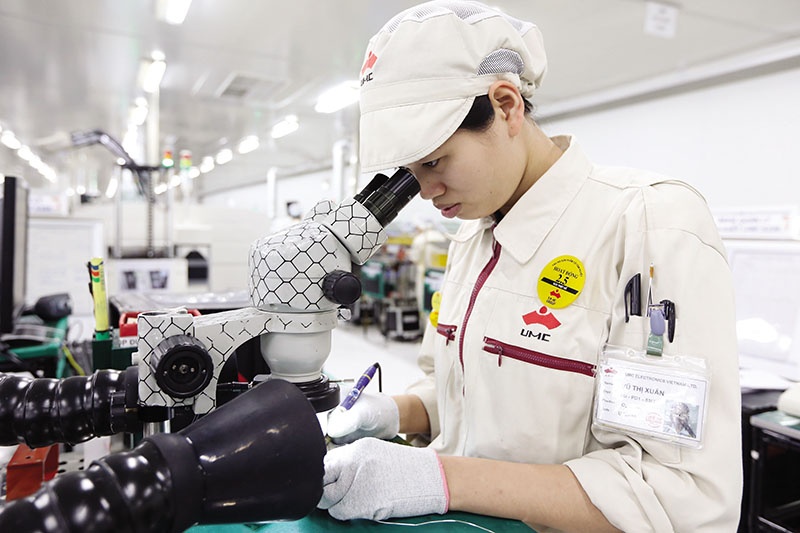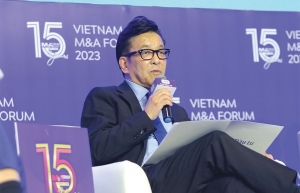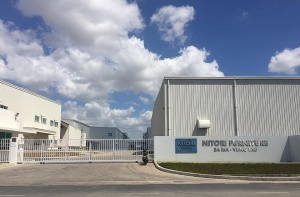JETRO survey finds 57 per cent of Japanese companies plan to expand in Vietnam
 |
A survey on the business conditions of Japanese companies operating overseas was conducted by JETRO in Hanoi and Ho Chi Minh City from August to September.
It included Japanese-affiliated companies with direct and indirect Japanese investment of 10 per cent or greater, and the branch and representative offices of Japanese companies in Vietnam. JETRO received valid responses from 849 businesses.
About 47 per cent of manufacturing and 65.5 per cent of non-manufacturing companies planned to expand, down 7.3 and 0.4 per cent on-year, respectively. Among the reasons for the expansions, Japanese companies are targetting consumption in the domestic market and increased exports.
"Although expansion ambitions remain high, Vietnam is the only country among the six key ASEAN nations to see a decreasing percentage compared to the previous year," said JETRO.
The percentage of companies that expect to generate operating profits in 2023 stood at 54.3 per cent, which is 6.6 per cent lower than the ASEAN average. From 2017 to 2019, the percentage was above the ASEAN average of 65 per cent.
The percentage of profitable companies in the manufacturing sector was 61.5 per cent, an increase of 0.4 points compared to the 2022 survey. The percentage of loss-making companies in the manufacturing sector climbed by 2.7 per cent to 22 per cent.
There were increasing numbers of profitable companies producing machinery and spares, textiles, electrical components, and electronics. Meanwhile, figures were lower for timber products, paper, and printing.
The percentage of companies turning a profit in the non-manufacturing sector was 46.7 per cent, while the figure for loss-making firms was 27 per cent, down 10.9 and 4.4 per cent, respectively. The number of profitable companies in the travel and amusement sector increased, whereas fewer sales, trade, and wholesale companies generated profits.
According to the survey, 32 per cent of companies said that their operating profit for 2023 would increase on-year, which is 15.6 per cent lower than in the 2022 survey. The percentage of companies with the opposite outlook stood at 35.7 per cent, an increase of 13.1 points.
Rising demand in the export market was the top reason for the increasing operating profit forecast for the manufacturing sector. The main factor driving non-manufacturing firms was domestic consumption, with improvements in productivity and reductions in labour costs also featuring prominently.
The most common reasons for the decreased operating profits were related to shrinking demand. Meanwhile, in the 2022 survey, they were rising raw material, parts procurement, and labour costs, as well as the effects of exchange rate fluctuations.
Looking at the forecast for 2024, 50.4 per cent of Japanese companies expected an increase on the back of the improvements seen this year.
 | Japanese escalate investment studies Japanese investors are implementing a careful study of the business environment in Vietnam, providing a basis for their long-term and sustainable expansion. |
 | Expansion in Vietnam a must for Japanese investors Japan continues to be one of the key players in Vietnam’s merger and acquisition market. At the Vietnam M&A Forum on November 28, Masataka “Sam” Yoshida, head of the Cross-border Division of RECOF Corporation, talked to VIR’s Thanh Van about what could be next for Japan’s investors. |
 | Japanese investors continue to make headway in Vietnam Japanese investors are continuing to ramp up their expansion in the Vietnamese market as the two nations have recently elevated their bilateral ties. |
What the stars mean:
★ Poor ★ ★ Promising ★★★ Good ★★★★ Very good ★★★★★ Exceptional
 Tag:
Tag:
Related Contents
Latest News
More News
- VIFC launches aviation finance hub to tap regional market growth (February 06, 2026 | 13:27)
- KKR and Singtel step up data centre investment in Southeast Asia (February 06, 2026 | 13:09)
- MAE names big 10 policy wins in 2025 (February 06, 2026 | 08:00)
- US firms deepen energy engagement with Vietnam (February 05, 2026 | 17:23)
- Vietnam records solid FDI performance in January (February 05, 2026 | 17:11)
- Site clearance work launched for Dung Quat refinery upgrade (February 04, 2026 | 18:06)
- Masan High-Tech Materials reports profit: a view from Nui Phao mine (February 04, 2026 | 16:13)
- Hermes joins Long Thanh cargo terminal development (February 04, 2026 | 15:59)
- SCG enhances production and distribution in Vietnam (February 04, 2026 | 08:00)
- UNIVACCO strengthens Asia expansion with Vietnam facility (February 03, 2026 | 08:00)




















 Mobile Version
Mobile Version